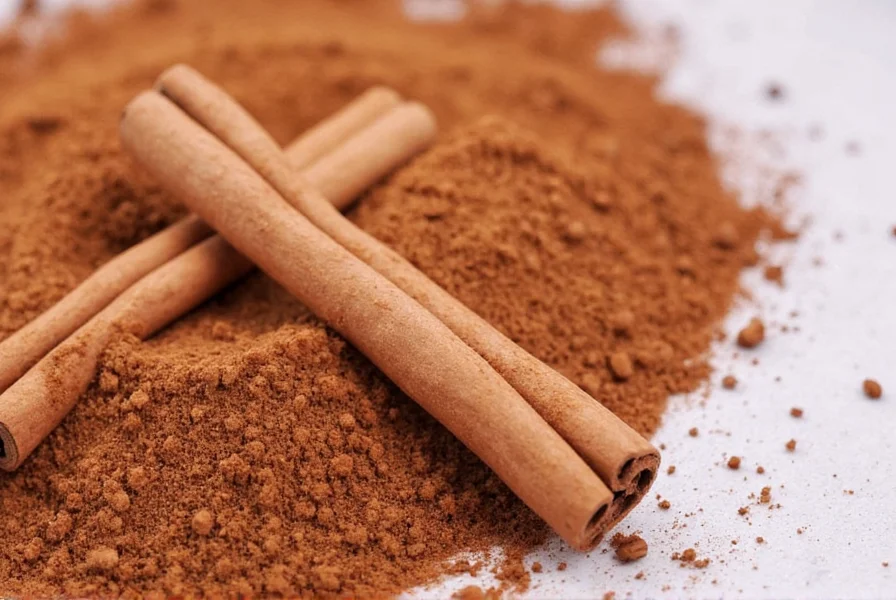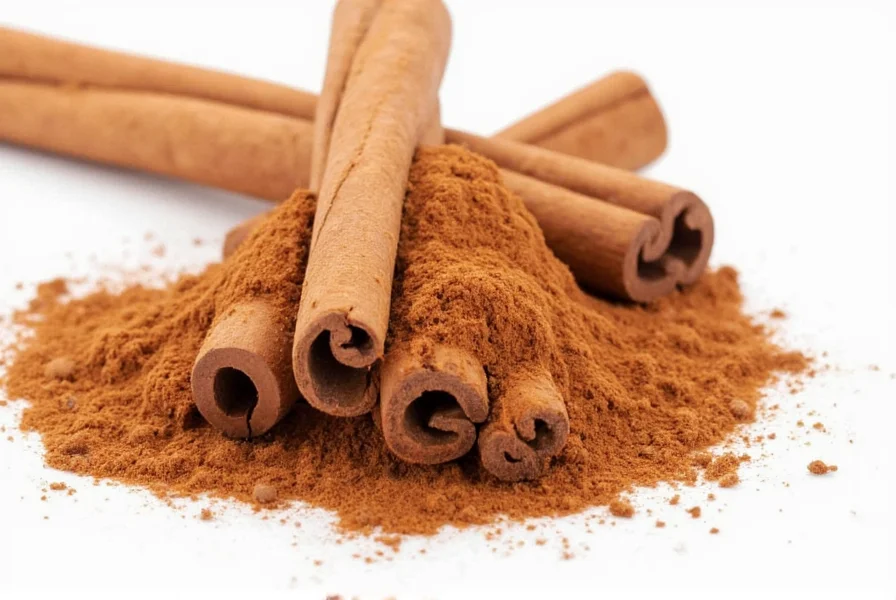Cinnamon isn't just a warming spice that enhances your morning coffee or baked goods—it's a powerhouse of health-promoting compounds with centuries of traditional use now validated by modern science. This aromatic bark from Cinnamomum trees has been used medicinally since ancient Egyptian times, and contemporary research continues to uncover its impressive therapeutic potential.
The Science Behind Cinnamon's Health Properties
Two primary varieties dominate the market: Cassia (common cinnamon) from China and Indonesia, and Ceylon ("true" cinnamon) from Sri Lanka. While both offer benefits, Ceylon contains significantly less coumarin—a compound that can cause liver issues in large amounts—making it the preferred choice for regular consumption.
| Cinnamon Type | Source | Coumarin Content | Best For |
|---|---|---|---|
| Cassia | China, Indonesia | High (2.1-6.6mg/g) | Occasional culinary use |
| Ceylon | Sri Lanka | Very Low (0.004mg/g) | Regular consumption, therapeutic use |
7 Evidence-Based Cinnamon Health Benefits
1. Regulates Blood Sugar Levels
Multiple studies demonstrate cinnamon's impressive ability to improve insulin sensitivity and lower blood glucose. A comprehensive meta-analysis published in the Journal of Medicinal Food found that cinnamon supplementation significantly reduced fasting blood glucose levels in people with type 2 diabetes and prediabetes. The active compounds, particularly cinnamaldehyde and polyphenols, mimic insulin's effects and enhance glucose uptake by cells.

2. Powerful Antioxidant Properties
Cinnamon ranks among the most antioxidant-rich foods on the planet. Research in Oxidative Medicine and Cellular Longevity identified over 41 protective compounds in cinnamon, with polyphenols comprising its most potent antioxidant category. These compounds neutralize free radicals, reduce oxidative stress, and may slow cellular aging. In fact, cinnamon's ORAC (Oxygen Radical Absorbance Capacity) score surpasses many fruits and vegetables, making it an exceptional addition to an anti-aging diet.
3. Reduces Inflammation
Chronic inflammation contributes to numerous diseases including heart disease, cancer, and neurodegenerative conditions. Cinnamon contains potent anti-inflammatory compounds like cinnamaldehyde that inhibit inflammatory pathways. A study in BMC Immunology demonstrated cinnamon's ability to suppress inflammatory markers like TNF-α and IL-6, suggesting its potential role in managing inflammatory conditions when consumed regularly.
4. Supports Heart Health
Cardiovascular benefits represent another well-documented advantage of cinnamon consumption. Clinical trials show that daily cinnamon intake (1-6 grams) can significantly reduce triglycerides, LDL cholesterol, and total cholesterol while maintaining healthy HDL levels. These effects, combined with cinnamon's blood pressure-lowering potential through improved vascular function, contribute to comprehensive heart protection.
5. May Improve Brain Function
Emerging research suggests cinnamon may protect against neurodegenerative diseases. Compounds in cinnamon appear to inhibit the buildup of tau proteins and amyloid plaques associated with Alzheimer's disease. Animal studies published in the Journal of Alzheimer's Disease showed that cinnamon extract improved cognitive function and reduced oxidative stress in brain tissue, though more human studies are needed to confirm these promising effects.
6. Natural Antimicrobial Properties
Cinnamon's essential oil demonstrates significant antibacterial and antifungal activity against common pathogens including E. coli and Candida species. This explains its historical use as a food preservative and suggests potential applications for oral health. Research in Food Control journal confirmed cinnamon's effectiveness against foodborne pathogens, supporting its traditional role in food safety.

7. May Help Manage Polycystic Ovary Syndrome (PCOS)
Women with PCOS often experience insulin resistance, and cinnamon shows promise as a complementary therapy. A randomized controlled trial in Fertility and Sterility found that women with PCOS who took 1.5 grams of cinnamon daily experienced significant improvements in insulin sensitivity and menstrual regularity compared to placebo. While not a replacement for medical treatment, cinnamon represents a valuable dietary addition for PCOS management.
How to Incorporate Cinnamon Into Your Diet
For maximum health benefits without exceeding safe coumarin levels, experts recommend:
- Choose Ceylon cinnamon for regular consumption
- Limit daily intake to 0.5-2 teaspoons (1-6 grams)
- Add to morning coffee, tea, or smoothies
- Sprinkle on oatmeal, yogurt, or fruit
- Use in savory dishes like curries and stews
- Make cinnamon tea by steeping sticks in hot water
Safety Considerations and Dosage Guidelines
While cinnamon is safe for most people in culinary amounts, certain precautions apply:
- People with liver conditions should limit Cassia cinnamon due to coumarin content
- Those taking diabetes medication should monitor blood sugar closely as cinnamon may enhance medication effects
- Pregnant women should consume cinnamon in normal food amounts only
- Stop using cinnamon supplements at least two weeks before surgery due to potential blood sugar effects
The European Food Safety Authority recommends a maximum daily coumarin intake of 0.1 mg per kilogram of body weight. For a 150-pound person, this translates to approximately 1 teaspoon of Cassia cinnamon or several tablespoons of Ceylon cinnamon daily.
Conclusion: Cinnamon as a Functional Food
Cinnamon represents one of nature's most versatile functional foods—delicious enough for daily culinary use yet potent enough to deliver meaningful health benefits. When incorporated as part of a balanced diet, this ancient spice offers a natural approach to supporting metabolic health, reducing inflammation, and protecting against chronic disease. While not a miracle cure, the scientific evidence supporting cinnamon's health properties continues to grow, validating its place in both traditional medicine and modern nutritional science.
Frequently Asked Questions
What is the most effective type of cinnamon for health benefits?
Ceylon cinnamon ("true" cinnamon) offers the best balance of health benefits and safety for regular consumption. While both Ceylon and Cassia cinnamon provide similar health-promoting compounds, Ceylon contains significantly lower levels of coumarin—a compound that can cause liver issues in high amounts. For therapeutic use or daily consumption, Ceylon is the preferred choice, though Cassia works well for occasional culinary use.
How much cinnamon should I take daily for blood sugar control?
Research suggests 1-6 grams (approximately 0.5-2 teaspoons) of cinnamon daily can improve blood sugar control. Most studies showing significant benefits used 1-3 grams (about 1/2 to 1 teaspoon) daily. For people with diabetes or prediabetes, starting with 1 gram (1/2 teaspoon) daily and monitoring blood glucose is recommended. Always consult your healthcare provider before using cinnamon therapeutically, especially if you take diabetes medication.
Can cinnamon help with weight loss?
While cinnamon isn't a direct weight loss solution, it may support healthy weight management through several mechanisms. By improving insulin sensitivity and blood sugar control, cinnamon can reduce cravings and prevent energy crashes that lead to overeating. Some studies suggest cinnamon may also modestly increase metabolic rate. However, significant weight loss requires comprehensive lifestyle changes—cinnamon should be viewed as a supportive element rather than a primary weight loss tool.
How long does it take to see benefits from regular cinnamon consumption?
Most research indicates noticeable benefits from cinnamon consumption appear after 4-12 weeks of consistent daily use. Blood sugar improvements typically become measurable within 4-8 weeks, while reductions in inflammation markers may take 8-12 weeks. For best results, consume 1-2 grams (1/2 to 1 teaspoon) of Ceylon cinnamon daily as part of a balanced diet. Individual responses vary based on health status, diet, and other lifestyle factors.
Can I take cinnamon supplements instead of the spice?
Cinnamon supplements provide concentrated doses of active compounds and may be convenient, but whole cinnamon offers additional benefits from its full spectrum of natural compounds. Supplements vary widely in quality and composition—some contain only specific extracts while others include the problematic coumarin. If choosing supplements, look for Ceylon-based products with third-party testing. For most people, incorporating 1-2 teaspoons of Ceylon cinnamon into daily meals provides sufficient benefits without supplement risks.










 浙公网安备
33010002000092号
浙公网安备
33010002000092号 浙B2-20120091-4
浙B2-20120091-4